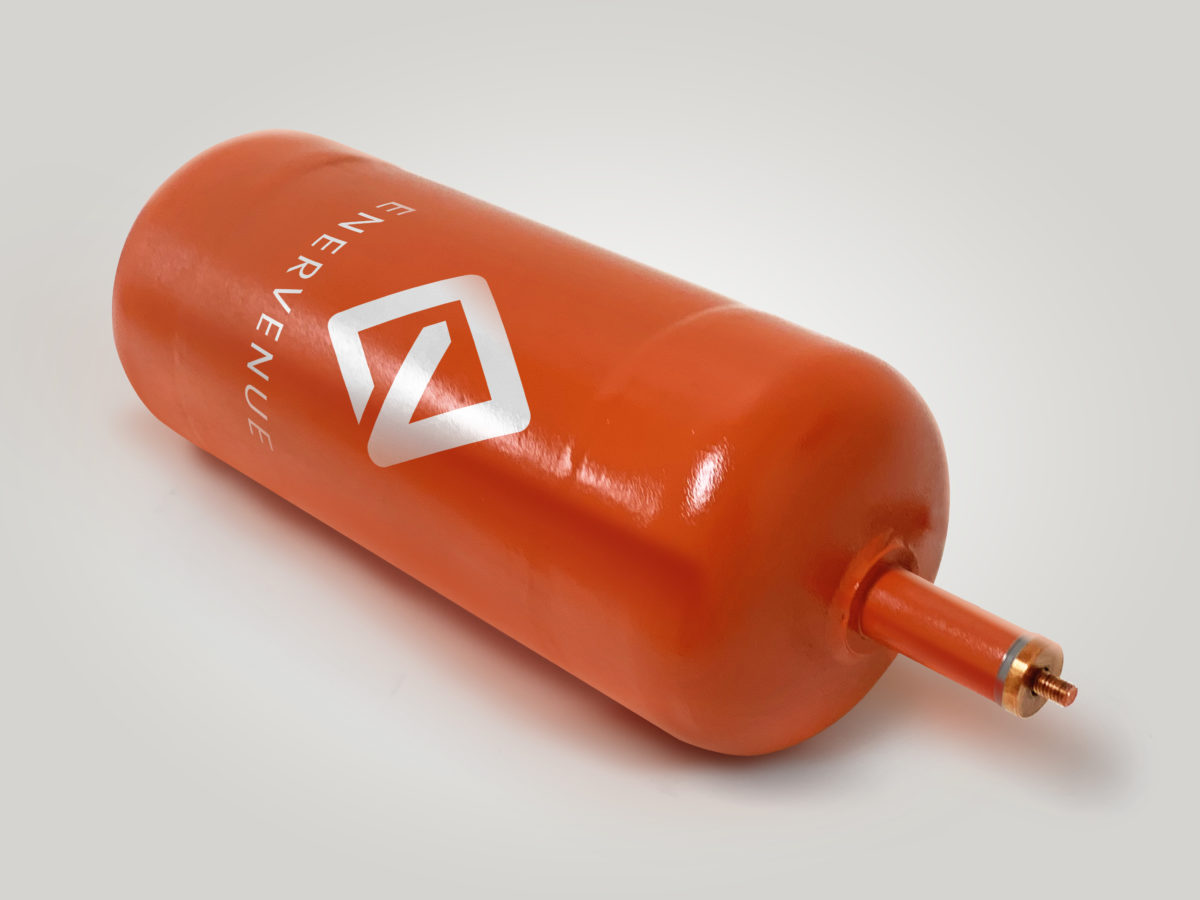US energy storage company EnerVenue has completed UL 9540A cell-, module- and unit-level evaluation of thermal runaway fire propagation. The company has also certified its Energy Storage Vessels to UL 1973.
UL 9540A testing includes progressively larger-scale fire tests beginning at the cell level and progressing to the module level, unit level, and finally the installation level. The tests are designed to evaluate the risk of thermal runaway and fire propagation in battery energy storage systems.
Most lithium-ion technologies generate flames during the UL 9540A test at the cell level. For instance, a punctuated lithium-ion cell will catch fire and for this reason manufacturers are adding additional protection around cells to contain thermal runaway at the module level and meet testing criteria.
EnerVenue’s Energy Storage Vessels completed UL 9540A testing at the cell level with no flames observed during induced thermal runaway.
“Our UL 9540A test results confirm our proven battery chemistry as the leading option for customers concerned with eliminating the possibility of fires or thermal hazards at their grid-scale installations,” said Majid Keshavarz, EnerVenue's CTO.
Since its metal-hydrogen batteries require no additional packaging or modification to prevent explosion or fire propagation, EnerVenue claims that its customers are able to reduce project risk, OPEX costs, risk to personnel, and environmental concerns.
In another safety milestone, the company also certified its Energy Storage Vessels to UL 1973. The safety standard applies to stationary batteries and certifies the ability of a battery system to safely operate under normal and abnormal conditions relative to electrical, mechanical, and environmental safety.
“UL 1973 confirms and validates our safety claims and satisfies a requirement for the deployment of grid-scale and commercial energy storage systems,” said Andrzej Skoskiewicz, vice president of product engineering at EnerVenue.
Established in 2020, EnerVenue claims that its nickel-hydrogen batteries have lifespans of more than 30 years through more than 30,000 cycles without experiencing degradation and therefore come with no maintenance costs. The company also claims costs per kilowatt-hour as low as a penny, as well as capital expenditure costs that beat lithium-ion batteries.
As demonstrated by its use in NASA satellites, the nickel-hydrogen battery technology is particularly good in remote and harsh conditions with operational temperature ranging between -40 C to 60 C. EnerVenue's battery has an efficiency ranging from 80 to 90%, depending on the cycle rate, and its energy density per square foot is equal to, or better than lithium-ion batteries, according to the company.
EnerVenue raised $125 million in a December 2021 Series A equity offering from Schlumberger, Saudi Aramco Energy Ventures, and Stanford University, and was advised by Barclays. The funding round followed an earlier $12 million seed round that year.
In March, the US start-up announced its plans to invest in a one-million square-foot gigafactory in the state of Kentucky, where it will design, manufacture and test its nickel-hydrogen Energy Storage Vessels.
EnerVenue reports that it has more than 7 GWh of customer commitments, including from Pine Gate Renewables, Nicon Industries’ Green Energy Renewable Solutions, and Schlumberger New Energy, among others.
This content is protected by copyright and may not be reused. If you want to cooperate with us and would like to reuse some of our content, please contact: editors@pv-magazine.com.




1 comment
By submitting this form you agree to pv magazine using your data for the purposes of publishing your comment.
Your personal data will only be disclosed or otherwise transmitted to third parties for the purposes of spam filtering or if this is necessary for technical maintenance of the website. Any other transfer to third parties will not take place unless this is justified on the basis of applicable data protection regulations or if pv magazine is legally obliged to do so.
You may revoke this consent at any time with effect for the future, in which case your personal data will be deleted immediately. Otherwise, your data will be deleted if pv magazine has processed your request or the purpose of data storage is fulfilled.
Further information on data privacy can be found in our Data Protection Policy.